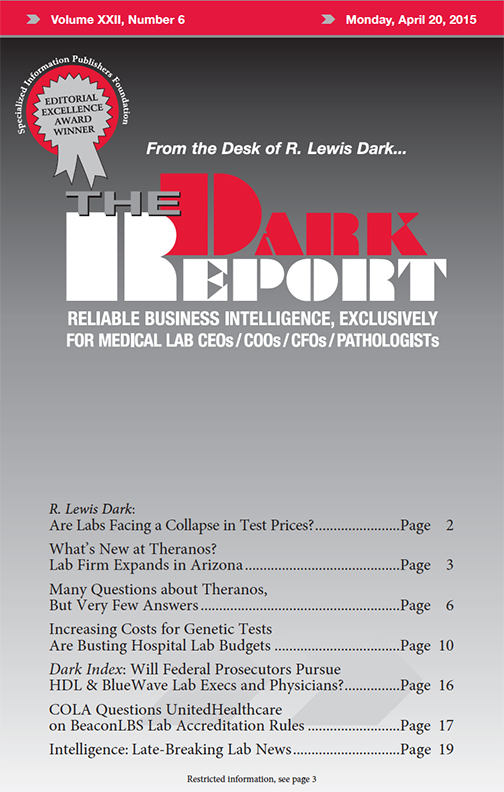CEO SUMMARY: Over the past 18 months, Theranos has taken steps to enter the clinical lab marketplace. Across Greater Phoenix, Theranos now has specimen collection centers in about 40 Walgreens pharmacies. It is opening a CLIA lab facility in Scottsdale. Now that it is delivering clinical laboratory testing services on a regular basis, the quality of its laboratory test results and the service it provides to physicians and patients will get close scrutiny from both investors and competing labs.
To access this post, you must purchase The Dark Report.


